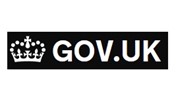The SEND Code of practice provides a lot of guidance, advice as well as explaining legal duties for local authorities, education providers as well as health and social care. It is focused on providing good outcomes* for children and young people with special educational needs.
*Good outcomes mean that children and young people with additional needs should have the best possible outcome from when they are in education and allow them to have as successful adult life as possible.
The SEND Code of practice is “Person Centred,” this means that it aims to keep the children’s or young person’s goals at the centre of all it does. This means that everyone who follows the code of practice needs to make sure that the child or young person is treated as an individual and has their own dreams and goals (aspirations) at the centre of any support or help that is offered.
Local authorities, education settings and other professionals need to make sure that children and young people participate in all planning and decisions they make. They also need to make sure they help children and young people to express their views.
The SEND Code of Practice also explains how Education, Health and Care Plans (EHCP's) work, more information about can be found on the Local Offer EHCP (opens link in new window)
The SEND Code of practice also provides guidance on what happens when children or young people leave education and become an adult.
It also provides guidance on other services available to children and young people with SEND such as services from social care and health.
NASEN (National Association of Special Educational Needs) have produced a quick guide to the SEND Code of Practice (link below)
NASEN SEND Code of Practice miniguide (opens link PDF in new window)
There is more in depth guide for parents and carers produced by the government called the SEND Code of Practice - Guide for parents (opens link in new window)

